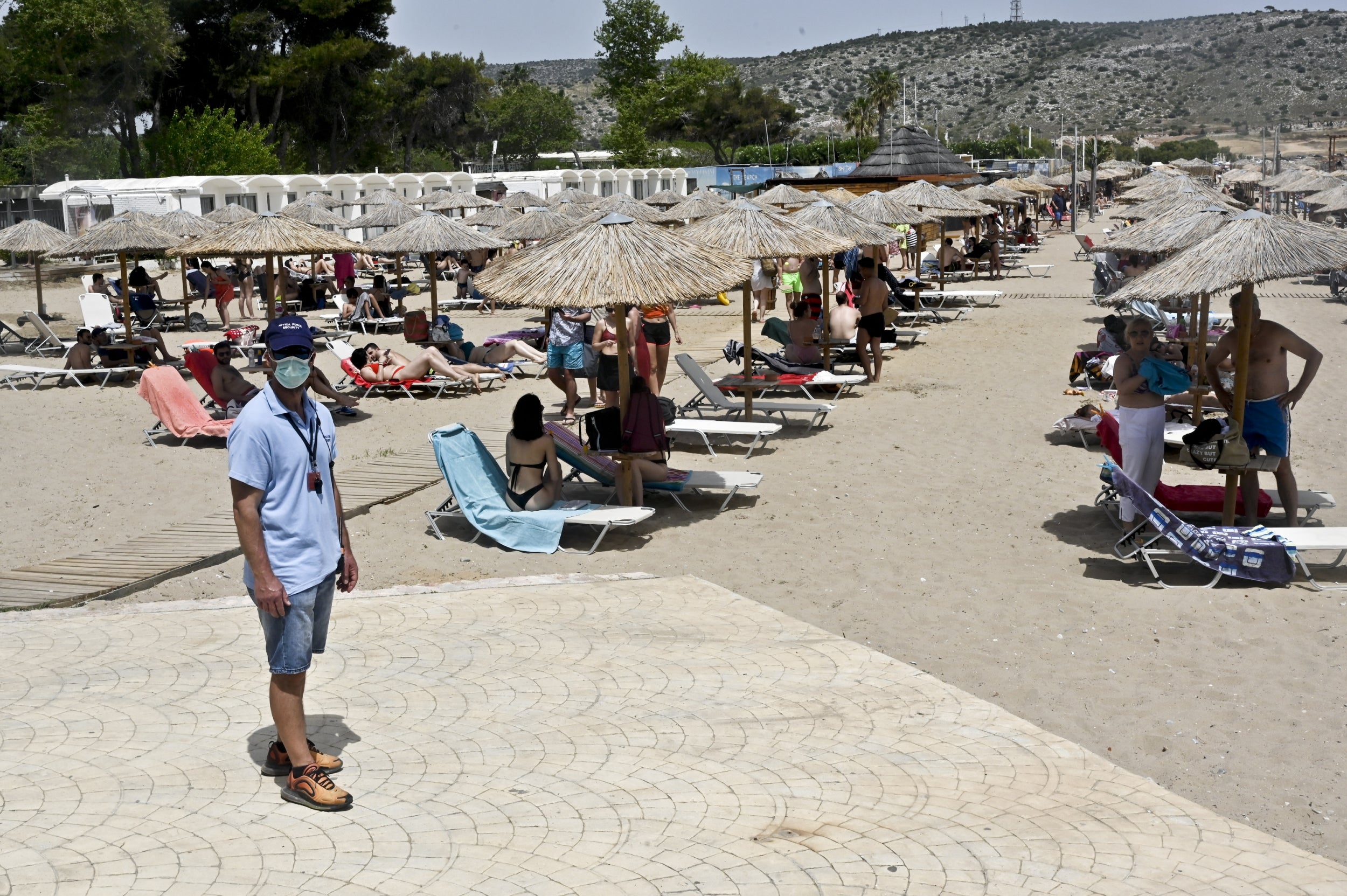I might extend my stay in Greece, their handling of coronavirus inspires confidence – not fear
Arriving into London and being approached by people in pink hi-vis with hand gel doesn’t fill me with confidence. Greece, on the other hand, feels almost normal, writes Chris Blackhurst


In many years of holidays in Greece, this has been the only year we’ve enquired about extending our stay. The only occasion when, thanks to a new tax-attractive scheme aimed at attracting settlers from across Europe, I’ve found myself looking wistfully at an estate agent’s window.
The Greek government is introducing a 7 per cent flat rate of income tax for “retirees” looking to relocate. Such an initiative is not new – Portugal tried something similar. But unlike Portugal, the Greek low tax applies to all sources of income, not just pensions. The provisos are that you must reside in Greece for more than six months in the year, and you cannot take a Greek job. So if you can work remotely, you can qualify – in other words you don’t need to have “retired” at all. Just €300,000 (£270,000) gets you a beautiful villa overlooking the Ionian Sea, complete with pool and fast broadband, not far from the airport...
The sun, sand, sea weigh heavily. So does safety. In Greece we’ve not felt suffocated and impeded by Covid-19. I admit to not reading or understanding Greek but we’ve not been aware of fury and constant rows, not like in Britain. We wear masks in shops and taxis, I was tested on arrival at the airport, the police patrol regularly and slap instant fines on anyone not obeying the rules. One local cafe was hit with €150 because as police drove past they saw that a waiter’s mask was not covering his mouth and nose. A bar owner at a neighbouring resort was arrested and faces a possible €10,000 fine plus a spell in prison for allowing customers to stand too close to each other when they should have been sitting.
There is another reason for the Greeks’ resilience. They’ve been through economic hell these past few years. They’ve suffered dreadfully
Our hotel manager lives in dread of a sudden police visit. Her workers always wear masks indoors; there are sanitisers dotted around; tables, tennis rackets, sun loungers, bicycles, anything that anyone touches – they’re all wiped down with disinfectant immediately after use.
But there is no evidence that I can see of the fuss, none of the drama that has been gripping Britain. Quite the reverse. The Greeks locked down early and fiercely. As a result, their infection and death rates are among the very lowest, and that is a source of national pride. Other countries may be tearing themselves to bits, suffering corona breakdowns. The Greeks are getting on with it, they’re doing whatever is required, they’re managing the crisis.
As they’ve reopened and tourists have arrived, their infection rate has climbed – but it lags far behind other places. And their reaction has been impressive – ordering bars to close early in the worst affected areas, and increasing the police presence and testing.
Partly, it’s undoubtedly due to previous experience with authoritarian government. Forget footage of past demonstrations in Athens, the police here generally command respect, and yes, possibly fear. It was noticeable, for instance, just how efficiently I was tested. A police officer standing by the passport desk was silently, mentally, counting down the line of arrivals, and every so often she would signal for someone to step aside. She said I’d been selected, and pointed to where I had to go. I went behind a curtain. They instantly copied the details on my phone from my already completed electronic Greek Covid-19 immigration form. A man wearing PPE told me to sit and open my mouth. He took a swab from my throat, and I was free to go. All over, literally, in seconds. If it was positive, I would be informed within 24 hours, if not I could enjoy my holiday.
Somehow, I am certain that the British equivalent would not be anywhere near so seamlessly conducted. It would not have been the police in charge, and therefore the person doing the choosing would not have the same power. I can guarantee there would have been numerous officials involved in the process and additional form-filling, and more noise.
I was reminded, starkly, of taking the train before we flew, from home to Waterloo, and being greeted by a veritable army of hi-vis pink jacket-clad folk offering me a squeeze of sanitiser or checking if I was OK. It was totally off-putting, instilling fear, not confidence, as if I’d disembarked into some sort of post-apocalypse death zone, instead of the nation’s vibrant capital and one of the most dynamic cities on the planet.
There is another reason for the Greeks’ resilience. They’ve been through economic hell these past few years. They’ve suffered dreadfully. There is a definite sense that for once they are not cast out on their own, that everyone is in this together. And you know what, they can teach those other nations, the supposedly smarter ones that joined in the collective humiliation when Greece’s finances spiralled out of control, a thing or two. Greece can see an opportunity – hence, while other countries are in the grip of the pandemic and hysteria, they are proposing their bargain tax scheme.
But for family and friends, and the children at school, we were sorely tempted. A country that once led the world in civilisation again has a lot to commend it.
Join our commenting forum
Join thought-provoking conversations, follow other Independent readers and see their replies
Comments